Rhinoplasty Recovery: All Aftercare Tips You Need to Know
Facial Plastic Surgery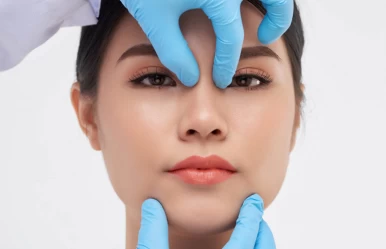
A nose job is one of the most favorable plastic surgeries in the world, through which the shape of the nose is changed in a better way. During nose surgery, the plastic surgeon corrects the structure of the nose to eliminate its deficiencies. The surgeon's skills and the type of nose (bony or fleshy) greatly impact the result of the nose job.
In addition, how you take care of your nose after nose surgery and in rhinoplasty recovery can highly affect the result of this operation. This article mentions rhinoplasty post-op instructions one by one and provides general tips on nose surgery.
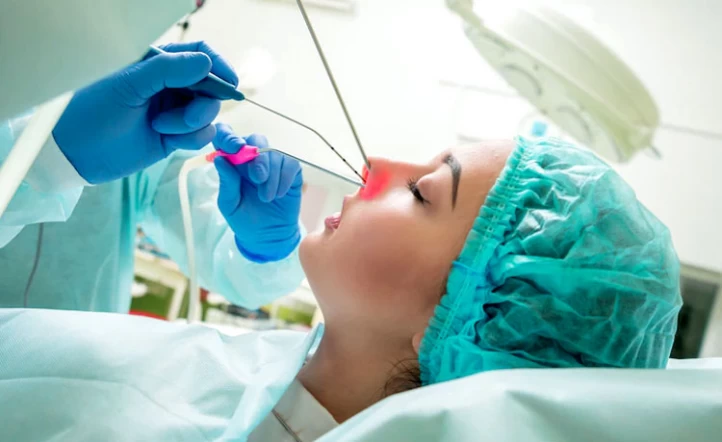
What to Expect During Rhinoplasty Recovery?
One of the essential points about rhinoplasty recovery is that you should wait at least a year to see the final results of your surgery because the swelling and bruising subside gradually, not a night.
After rhinoplasty, you must expect temporary complications such as tenderness on chicks, numb nose and areas around it, facial swelling, and bruising under the eyes. If you follow your surgeon’s postoperative instructions, you will not face any serious complications, and the outcome of your surgery will be marvelous.
There are also some rare complications, such as infection after rhinoplasty, frequent bleeding, difficulty breathing, and an adverse reaction to anesthesia which are life-threatening and should be treated as quickly as possible. So, you must be cautious and patient in caring for your nose during the nose job recovery.
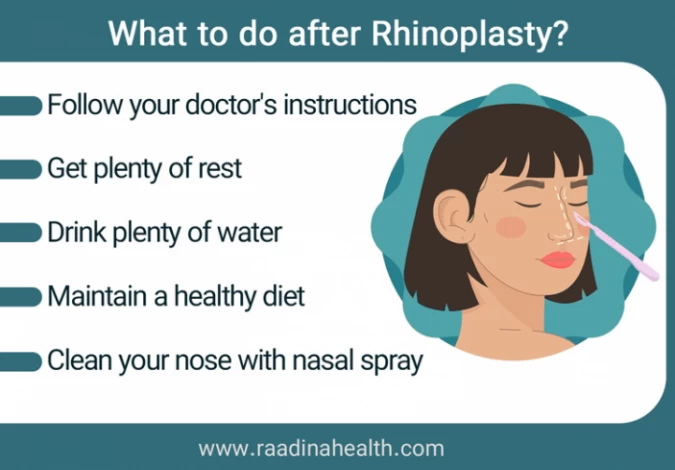
What to do after Rhinoplasty?
In the following, some tips related to the rhinoplasty recovery period are mentioned:
- Follow your doctor's instructions;
- Use different techniques to reduce the swelling;
- Get plenty of rest;
- Maintain a healthy diet during the nose job recovery period;
- Drink plenty of water;
- If you want to sneeze, keep your mouth open;
- If you have to wear prescription glasses, use frame-less ones for the first two weeks;
- Clean your nose with nasal spray and saline serum.
What not to do after rhinoplasty?
Read on to learn what you shouldn’t do in nose job recovery:
- Do not get your splints and tapes wet;
- Avoid doing heavy activities such as lifting heavy objects for at least six weeks;
- Do not wash your face for a couple of days after the surgery, and only use a wet wipe to clean your face;
- Avoid laughing and talking a lot for the first few weeks;
- Avoid going to crowded places where you may be hit on the nose;
- Avoid smoking and drinking alcohol;
- Avoid sun exposure and
- Do not wear heavy sunglasses for up to four months, and
- Do not blow your nose. You can use a cotton swab to clean your nose when the swelling has subsided.
Stages to Expect after Rhinoplasty
- Stage 1
Stage 1 is the most challenging stage after the nose job that lasts about a week. This stage is associated with difficulty breathing due to the splints and adhesive tape on the nose. The nose will be swollen, and dark bruises may be around the eyes.
- Stage 2
In the second week post-op, splints and nasal strips are removed. This will improve breathing through the nose. The swelling and bruising may also decrease by about 50%; however, the final result is not apparent. Patients should avoid heavy exercise, lifting heavy objects, and exposure to sunlight.
- Stage 3
Stage 3 lasts between 3 weeks to 3 months. At this stage, the nose swelling gradually begins to disappear. Although a change in the nose shape is visible, it should be considered a partial result. The nostrils and the size of the nose tip need more time to be stabilized. Patients can do moderate physical activities and use sunglasses at this stage.
- Stage 4
The last stage of Rhinoplasty takes 3 to 12 months. The healing is considered complete, and all swelling is disappeared entirely. At stage 4, patients can see the final result of the nose job.
The Night After Rhinoplasty
The initial swelling from rhinoplasty makes post-surgery first hours the most challenging time for all patients. As the doctor will put splints or protective covering on the nose to support the nose shape during the first week, the results cannot immediately be seen.
Most patients do not have to stay in the hospital except for a few hours after the operation. There may also be sleeping difficulty on the first night in some cases. Sleeping upright in a chair at night during the nose job recovery is good as long as swelling continues to ensure the head stays elevated.
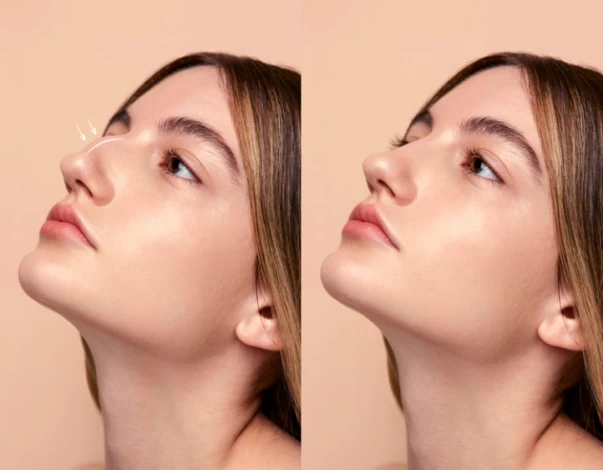
The First Week After Nose Job
If you want your nose to heal in the way that will be the most satisfying to you, take special care of it the first week after rhinoplasty. Here, we break down what to expect in the first week after rhinoplasty surgery, as well as instances to keep in mind and advice for ensuring that your rhinoplasty runs as smoothly as possible.
- Changing gauze
To absorb discharges and excess blood, you must tape gauze under your nose in the first two days after the nose surgery. It would help if you changed the gauze pads every six hours.
- Removing nose splints
To keep your nose straight and stabilize the cartilage, the surgeon will put a splint in and on it immediately following rhinoplasty. The external splints may stay on your nose for two weeks following nose surgery, while the internal ones will be taken off five to seven days later.
- Using a cold compress to reduce swelling
Two or three days following nose surgery, swelling around the nose will reach its peak, particularly in the morning. To lessen bruising and swelling, apply a cold compress to your nose and eyes once a day.
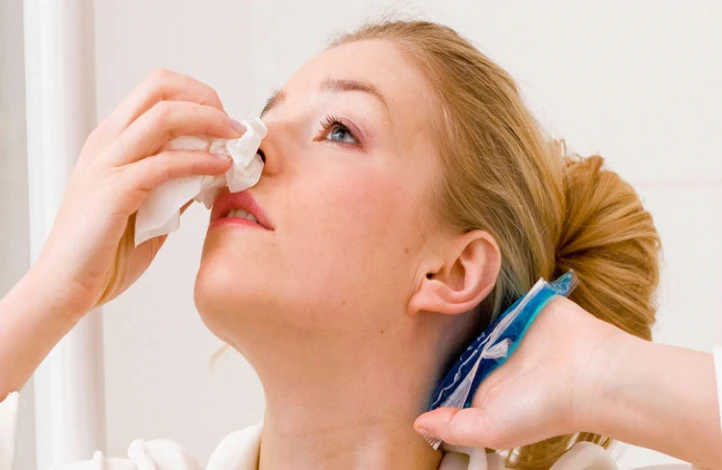
- Taking medication to reduce pain
Even though a nose job doesn't hurt, you might experience some minor discomfort in the nasal area for the first week. You can take over-the-counter painkillers such as Gelofen compound and Naproxen to reduce the pain. Remember that blood thinners such as aspirin and ibuprofen, Advil, or Nuprin should be avoided in the first week of nose job recovery as they can cause bleeding.
- Nasal congestion
You may experience congestion in your nose for the first week following rhinoplasty because all of the blood vessels inside your nose will swell. Unfortunately, there is no medication to reduce nasal stuffiness. You should wait 7 to 10 days and use a gentle saline spray to minimize the discomfort.
- Having soft foods
It is advised to avoid eating raw fruits and foods that need to be bit and chewed, like apples and carrots, and to consume soft foods during the first few days of nose job recovery.
- Elevating the head to reduce swelling
For a week following the rhinoplasty, you should sleep on your back with two pillows beneath your head to protect your nose and reduce swelling.
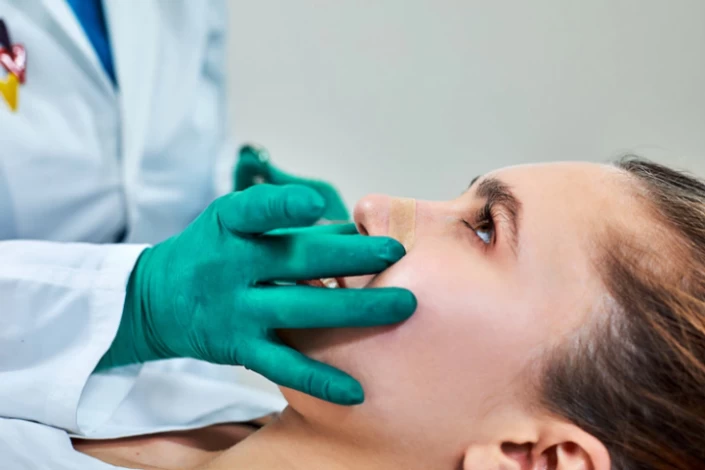
Weeks After Nose Job
1 Week After Rhinoplasty
Any staples, non-dissolvable sutures, and splints will be removed in the first doctor's appointment after a week. Because there will still be some swelling and bruising that cause noticeable changes to the nose, patients shouldn't worry about its size or shape. The ultimate outcome is determined by the medical purpose of the nose job, which may include reducing the size of the nose, lowering the nasal bridge, correcting the nose hump, etc.
2 Weeks After Rhinoplasty
All patients will noticeably lessen their post-operative bruising and swelling at this stage. Most patients will likely resume their regular activities after two weeks and won't require frequent doctor's appointments or medication.
After plastic surgery, some patients may notice an unexpected crooked nose, especially as the swelling gradually goes down. Most likely, this is a medical error that needs to be corrected.
A Month After Rhinoplasty
The majority of nose swelling goes away after a month, and cheek swelling might be the only thing left. At this stage, the first effects of nose job surgery are visible. It is not the end result, though, and the nose will keep healing.
3 Months After Rhinoplasty
At this stage, 90% of patients experience a significant change in the size and shape of their nose, and the outcomes are the most similar to the final. Patients can start wearing glasses and doing strenuous exercises now that the bone structure is stable.
1 Year After Rhinoplasty
Now that the swelling has subsided, the finished product is visible. When you compare the new photos with your old ones, you can see that the nose has reached the size and shape you agreed upon with your doctor and looks more natural.
Rhinoplasty Recovery: General Tips
Recovery from a nose job typically takes 7 to 15 days, depending on whether the nose is bony or fleshy. Patients who have fleshy nose rhinoplasty typically have a longer recovery time because of the thicker nasal skin and weaker cartilage. Naturally, you must wait six to twelve months after your nose job, or until the swelling from the procedure has completely gone down, to see the finished product.
Showering After Nose job
Showering during rhinoplasty recovery may increase the risk of infection and cause the incisions to open, so:
- Use bathing sponges to clean your body in the first few days following the surgery;
- Use enough shampoo to wash your hair so that you can control the produced foam while rinsing the hair;
- Wrap your nose with plastic to prevent your splints and tapes from getting wet;
- Shorten the length of time you spend in the shower;
- Avoid hot water and steam as they can increase swelling and delay the wound healing process;
- Use lukewarm water when washing your body;
- Avoid pulling your hair excessively when washing it, as this can cause damage to the incision site;
- Use alcohol and paraben-free soaps to wash your body and neck;
- Dry your body and hair completely; and
- Use hypoallergenic and fragrance-free moisturizers after showering.

What to Eat During Rhinoplasty Recovery?
Your healing process may be impacted by eating a nutritious, well-balanced diet. Following a rhinoplasty, you are typically instructed to refrain from eating for two or three hours After this period, you can have easy-to-digest dishes that do not make you nauseous, such as mashed potato or mixed soup during your rhinoplasty recovery. It is also recommended to avoid too cold or too hot, salty, hard-to-chew, and spicy dishes for a couple of days after the operation.
Adding protein to your diet is suggested, which can help your body repair damaged tissue in and around the nose. Moreover, vitamins A, C, and E during the nose job recovery can boost your immune system and prevent bleeding and scarring after a nose job.
Cleaning Nose After Rhinoplasty
A splint and nasal tampon are placed inside your nose during the first few days following rhinoplasty. As a result, you cannot clean the inside or outside of your nose during this period to avoid disrupting the healing process. After the removal of the nasal packing and splint, you can gently clean your nose as follows:
- Dip a cotton ball in a small amount of hydrogen peroxide. Then, gently insert it into the nostrils and wipe off the dried blood. It will help to wash your nose with hydrogen peroxide twice daily when you wake up and before sleep.
- After rinsing with hydrogen peroxide, apply an OTC antibiotic ointment inside the nose with a clean finger or cotton swab. Polysporin, Neosporin, and bacitracin are topical antibiotic creams that remove dried blood and prevent infection.
- Seven days following surgery, if blood clots in your nose are preventing you from breathing normally, use a saline spray to clear the clots and hydrate your nasal cavities. The majority of rhinoplasty surgeons advise applying saline spray twice in each nostril and four times a day.
- Almost four weeks after the procedure, you can use a 10-cc syringe and regular saline serum to wash your nose. This method requires you to bend your head over, use the syringe (without its needle) to insert the saline liquid into one nostril, and blow into the other nostril at the same time. The dried blood clots and any remaining sutures will swiftly get out of your nose if you do the aforementioned.
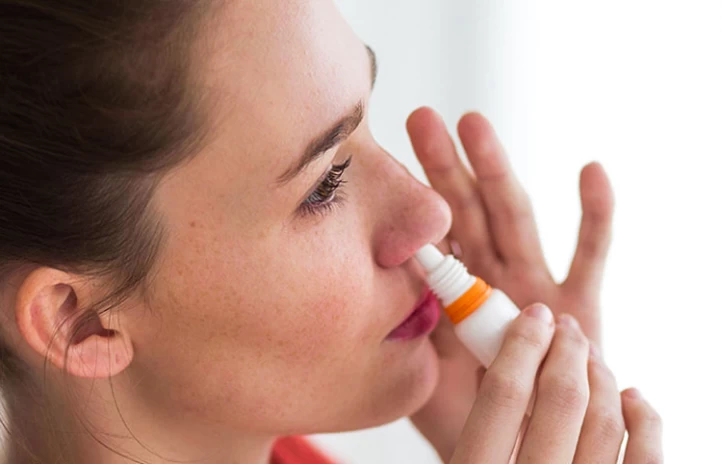
Exercising After Nose Job
Generally speaking, you should avoid strenuous physical activity for up to six weeks following rhinoplasty, depending on the type of surgery. Additionally, it is not advised to lift large weights while recovering because this may result in additional bruising and swelling. You can go swimming, walking, road-biking, or jogging two weeks after the nose surgery, but you should avoid ball games such as basketball, volleyball, or even martial arts for a year as you may get hit on the nose.
Wearing Glasses After Rhinoplasty
Wearing glasses (sunglasses, prescription, reading) should be avoided for four to six weeks after rhinoplasty because they can reposition the nasal cartilage or dent the nose. If you must wear prescription glasses, you can ask your doctor to teach you how to suspend them with transparent tape. Naturally, for a few weeks following the procedure, you can also wear contact lenses.
Wearing Make-up After Nose Job
The time you need to wait before wearing makeup varies according to the type of nose job. If you have undergone open rhinoplasty, you must refrain from applying makeup until your wounds are completely healed, i.e., 3 to 4 weeks. However, if you have closed rhinoplasty, you can wear makeup as soon as your tampons and splints are removed. Anyhow, wearing makeup can alter the outcome of your procedure, so take care not to press on your nose or hit the stitches.
Sleeping after Rhinoplasty
Your body can conserve energy for wound healing and reducing swelling if you get enough sleep during the recovery period following a rhinoplasty. When you rest following a rhinoplasty, bear the following points in mind.
·For a minimum of three weeks, sleep on your back. Your nose may hurt if you sleep on your stomach or sides;
·Keep your head up above shoulder level by supporting it with two pillows;
·Stay away from prescription sleeping pills while taking nose medication;
·Sleep by yourself in bed; Asking your partner or kids not to sleep next to you could prevent them from inadvertently hurting your nose.
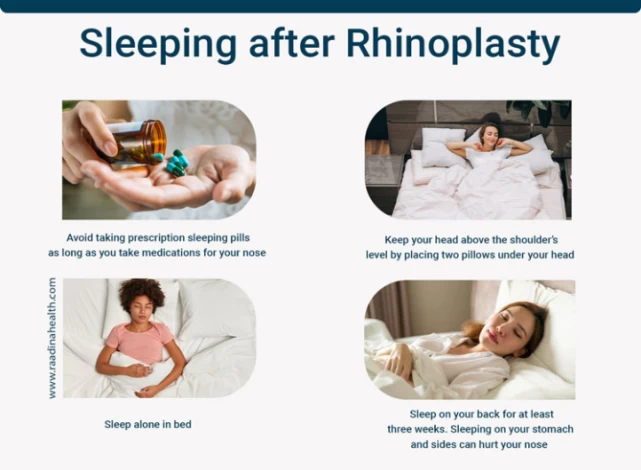
Taping the Nose after Rhinoplasty
One of the most important parts of a nose job is taping the nose, which improves the shape of the nose and lessens swelling. You should begin taping your nose once the splints on the inside and outside of it have been taken off. The proper technique and duration for taping your nose will be determined by your healthcare provider. After the nose job, you typically need to tape your nose continuously for one to three months.
Returning to Work After Rhinoplasty
After a rhinoplasty, most people are able to resume their jobs approximately a week after the removal of their splints. However, you must remain at home for a little while longer if your job requires a lot of physical labor or if you might be struck in the face while working. Additionally, ask your surgeon when you can resume work in case you must work in the sun or if you have to bend over a lot during the day.
Swelling after Rhinoplasty
Swelling is a normal reaction of the body to surgery. For up to a week after rhinoplasty, you will experience severe facial swelling, but it will subside gradually from the 7th day onwards. Meanwhile, you can follow these instructions to reduce the swelling more quickly:
- Keep your head elevated while sleeping. This will help the blood and fluids go downward and not accumulate in the face;
- Avoid bending over and lifting heavy objects. If you have a child, ask someone to be your caregiver for a week so that you don’t have to lift him/her;
- Avoid crowded places where you might get hit on the nose. It is also recommended to sleep alone for two weeks until your swelling is reduced;
- Put a cold compress on your eyes and forehead to reduce swelling. Be careful not to put the compress on your nose and splints;
- Do not take a shower with hot water, and when using the towel, do not rub it on the operated area;
- Avoid blowing and sniffing your nose just because you feel congestion in your nose;
- Avoid tanning your face and direct sun exposure;
- Rinse your nostrils with saline solution every six hours. This will help reduce swelling, bleeding, and nasal congestion.
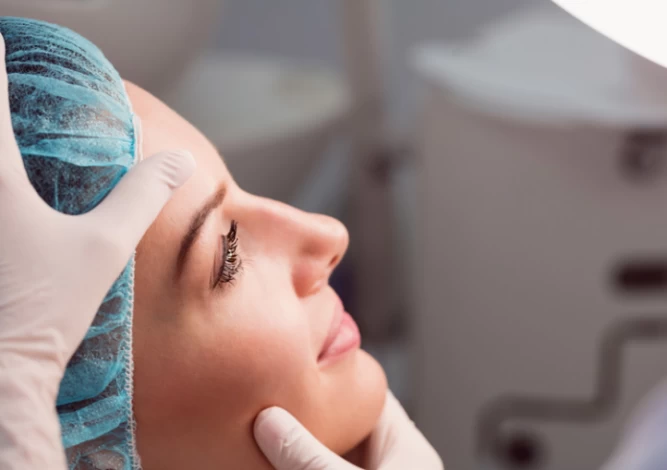
Bruising after Rhinoplasty surgery
Just like swelling, bruising after a nose job is common and normal. During the rhinoplasty recovery, bruising may occur under your eyes and forehead. The good news is that the nose job bruising fades away sooner than its swelling, and you can cover it with makeup starting a week after the operation. Once again, you can put ice packs on the bruised parts and keep your head above while sleeping to minimize bruising. Some surgeons also prescribe topical creams that help reduce bruising faster.
Rhinoplasty Hemorrhage
Hemorrhage or severe blood loss is a rare but risky complication of rhinoplasty, which happens to almost 1% of patients. If you face a rhinoplasty hemorrhage, lie down, put two pillows under your head, and contact your doctor immediately. Also, if you have pain during the nose job recovery, you can take OTC painkillers but do not take blood thinners such as aspirin or Advil.
Scarring after Rhinoplasty
Scarring is the inevitable complication of open rhinoplasty, but it is minimal and fades away over time. If you have a noticeable scar under your nose or around the nasal fins, you can use ointments and topical creams to remove them. Also, silicone gels, creams, and sheets are efficient treatments for rhinoplasty scars. If hypertrophy scars develop around the nose, the patient may need another surgery to remove them.
Dry Lips after Rhinoplasty
You can only breathe through your mouth during the first couple of days after the nose job, so your lips get dry and cracked. Try thick ointments such as Vaseline, Vitamin A, white petroleum jelly, and lip balm to reduce the dryness of your lips. Remember that the ointments should be applied a few centimeters away from the tapes as they can loosen and dislocate the splints. In addition to using moisturizers, using a humidifier indoors, drinking more water, avoiding sun exposure and cold wind, and avoiding peeling the flaky skin can help you get rid of chapped lips faster.
Dizziness after Rhinoplasty
Having weakness, dizziness, pulse, and sweating for a week after a nose job is common and normal as there are residual anesthetics in your blood, and your body uses lots of energy to heal the wounds and subside the swelling. There is no need for medications to reduce dizziness and lightheadedness as these symptoms resolve on their own within a few days. You should eat notorious food, drink plenty of fluids, and get enough rest to help your body save energy.
First Doctor Visit After Nose Job
Five to seven days after the nose job, you have to visit your doctor so that they can check the appearance and structure of your nose. In this session, the dressings, external splints, and external non-absorbent sutures are removed. Then, the nurse will wash your nostrils and teach you how to tape and clean your nose for the rest of the recovery period. You should record the instructions accurately so you won't have trouble taking care of your nose in the subsequent weeks.
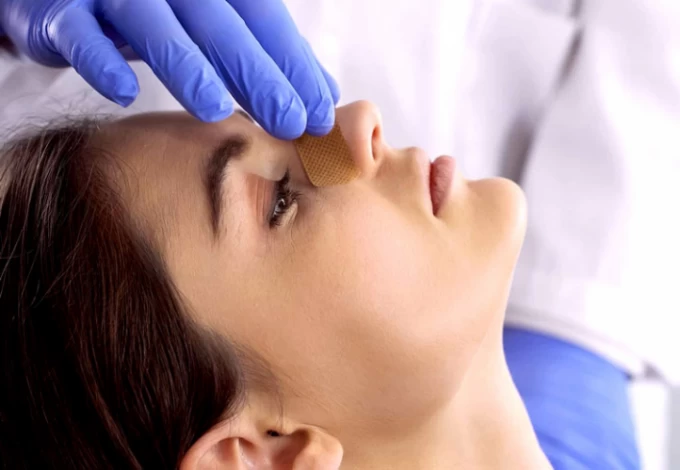
Revision Rhinoplasty Recovery
The recovery period of revision rhinoplasty is a bit longer, and it may take 24 months for its results to be revealed. The degree of pain and difficulty of revision nose job recovery depends on the technique used, the extent of the surgery, and the healing rate of each individual.
The recovery from this operation is a bit more difficult as the nose has lost its strength, and the incisions are made on scar tissue; therefore, healing is slower, and swelling is more severe. The post-op cares of revision rhinoplasty are just like a primary nose job. You need to avoid anything that elevates your blood pressure, prevent infection by taking antibiotics and keeping your wounds clean, and avoid the things that cause more scarring.
Sum Up
To summarize, rhinoplasty recovery is an important phase in nose surgery and can greatly affect the surgery's results. Following rhinoplasty post-op instructions, such as having a balanced diet, doing moderate exercises, cleaning the nose delicately, taking medications on time, etc., can speed up the healing process and reduce the complications of a nose job.
Why Is Rhinoplasty Popular in Iran?
Rhinoplasty is a cosmetic surgery that has become very popular in recent years in Iran and European countries. The reasonable price of this surgery in Iran compared to other countries has made Iran a favorable destination for those seeking to perform rhinoplasty in Iran. In addition to having a fair price, nose job in Iran is practised by skilled plastic and ENT surgeons with brilliant track records in the field of nose surgery.
Iran is desirable if you want a convenient and satisfactory nose job. Contact us for more information about the cost of rhinoplasty in Iran, how to apply for a medical visa, the best rhinoplasty surgeons in Iran, etc., and benefit from our economy nose job packages.
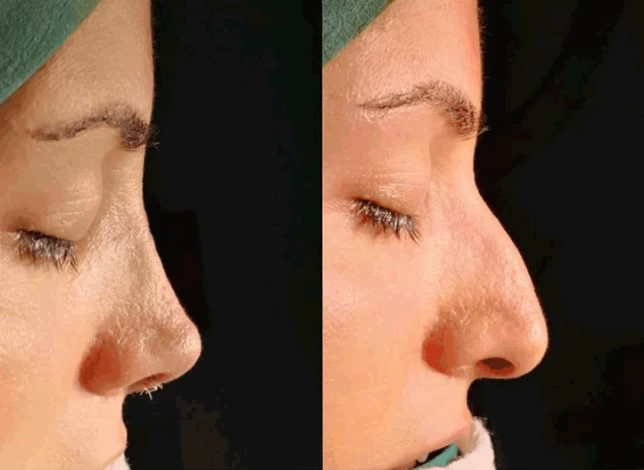
FAQs on Rhinoplasty Postoperative Care
1) What should I avoid after rhinoplasty?
The most important things you should avoid during the nose job recovery include strenuous activities, wearing glasses, smoking, touching or applying pressure on the nose, and blowing the nose.
2) Can I travel by plane after rhinoplasty?
According to many rhinoplasty surgeons, traveling by airplane is forbidden for at least one week after rhinoplasty because the air pressure may cause high blood pressure and nosebleeds.
3) How long does bruising last after rhinoplasty?
Depending on your health condition, it takes two to six months for bruising to fade away. You can reduce the swelling and bruises by putting a cold compress on them a day after the operation.
4) Can I bend my head during rhinoplasty recovery?
You shouldn’t bend your head over for the first three weeks after nose surgery as it would stretch your facial muscles and change the outcome of your operation.
5) How Long Does the rhinoplasty recovery take?
Although you can return to work and your daily routine from the second week after the operation, the whole rhinoplasty recovery takes six to eight weeks.
6) What happens six weeks after rhinoplasty?
Six weeks after rhinoplasty, most swellings subsided, and you can resume your daily activities, including exercising, swimming, and biking. However, you must still avoid unprotected sun exposure, allergens, the flu, and getting hit on the nose.

 WhatsApp
WhatsApp
 Telegram
Telegram
 Facebook
Facebook
 Email
Email

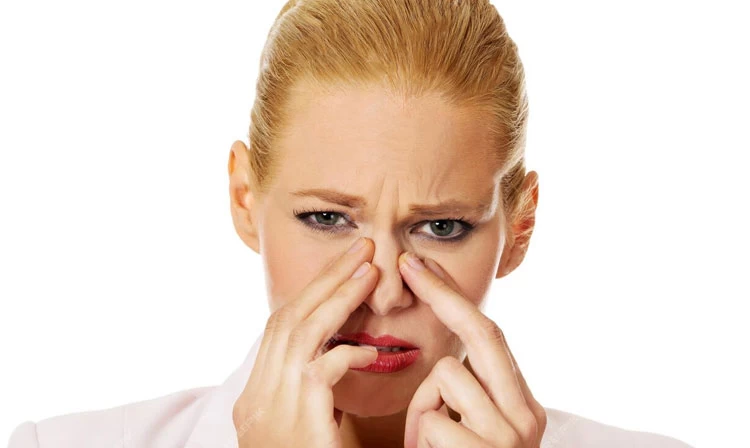
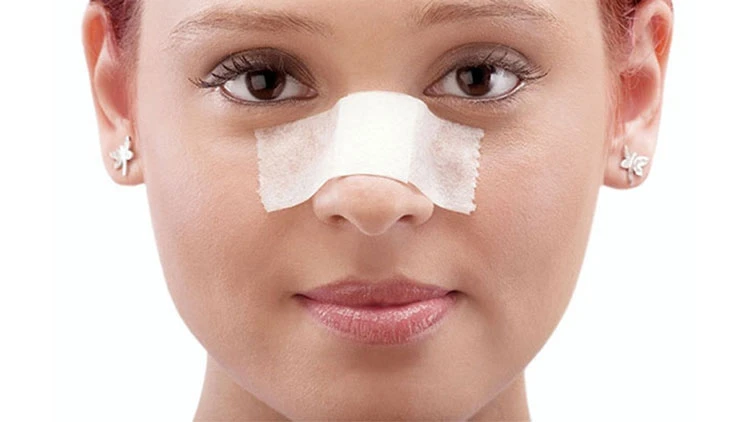
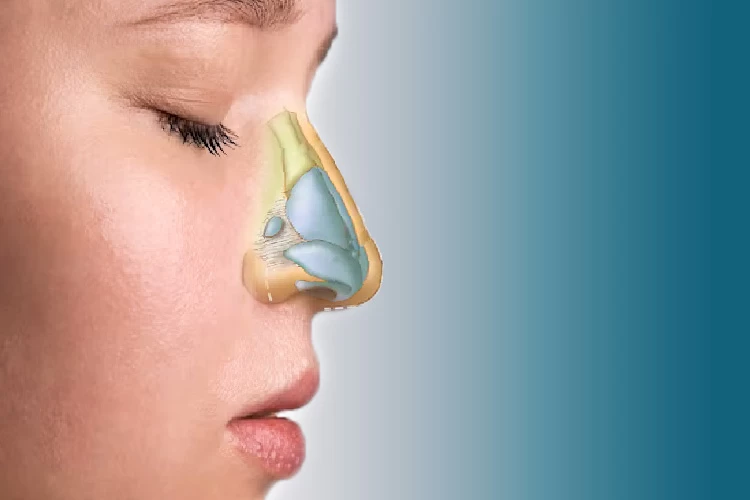
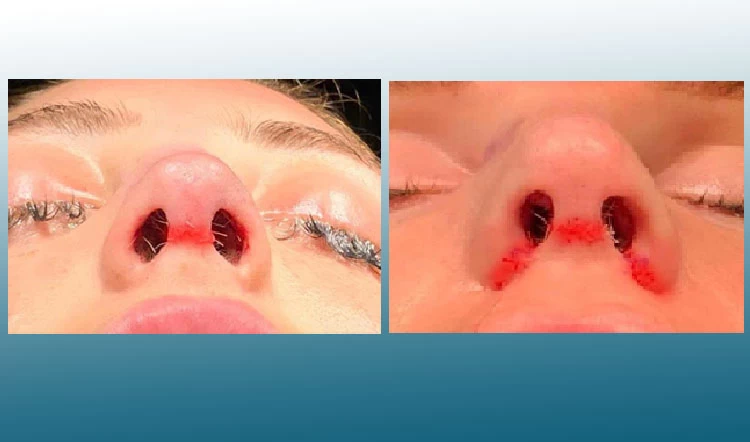
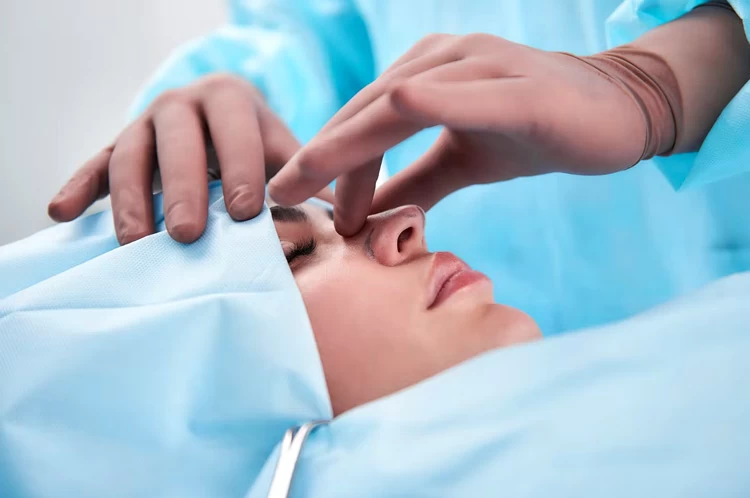
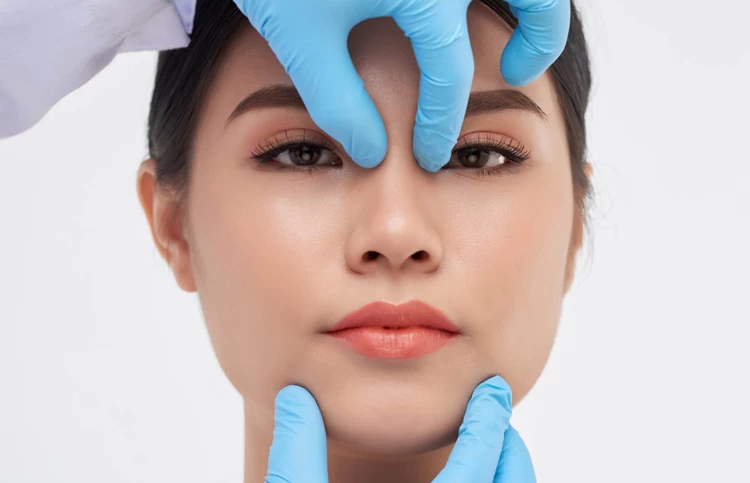
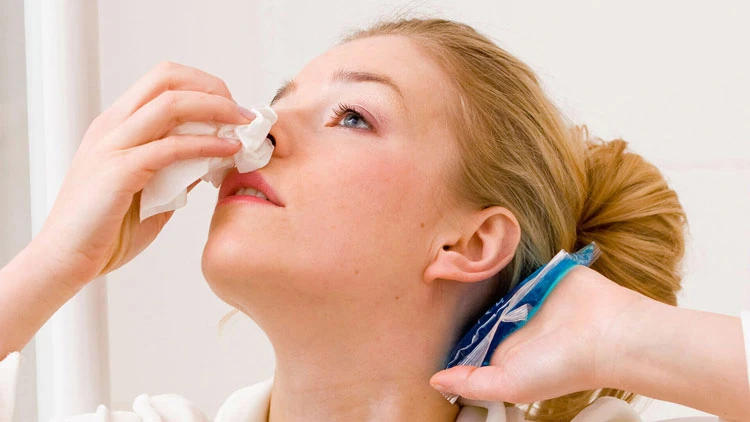

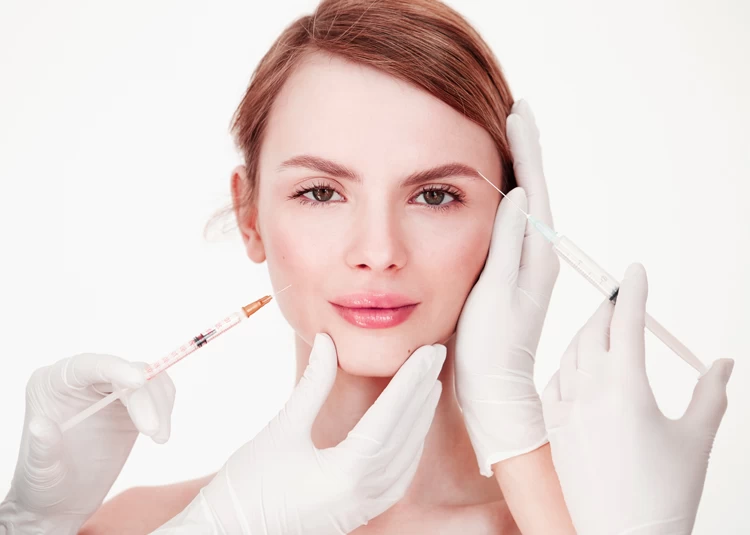
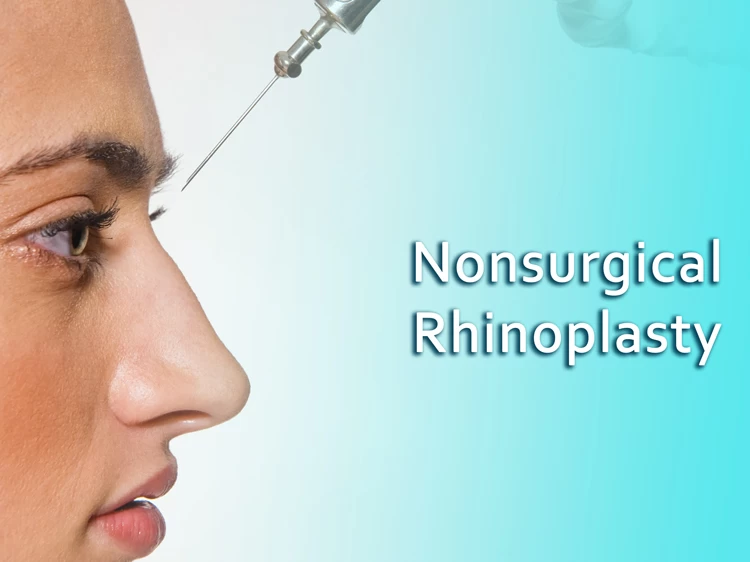
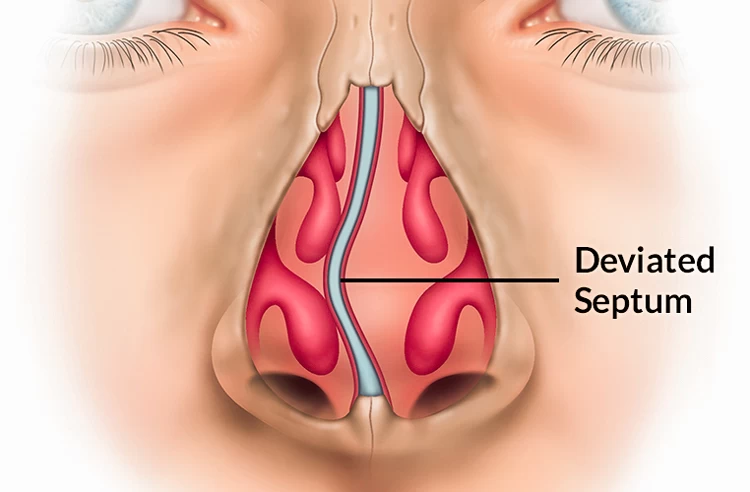
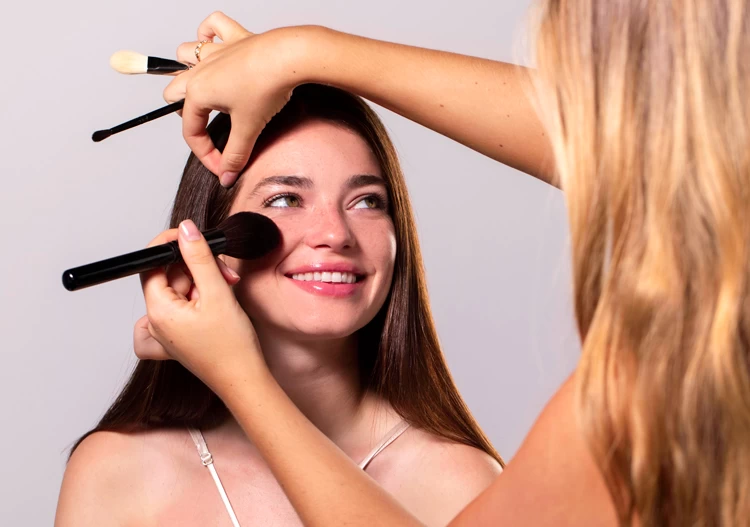
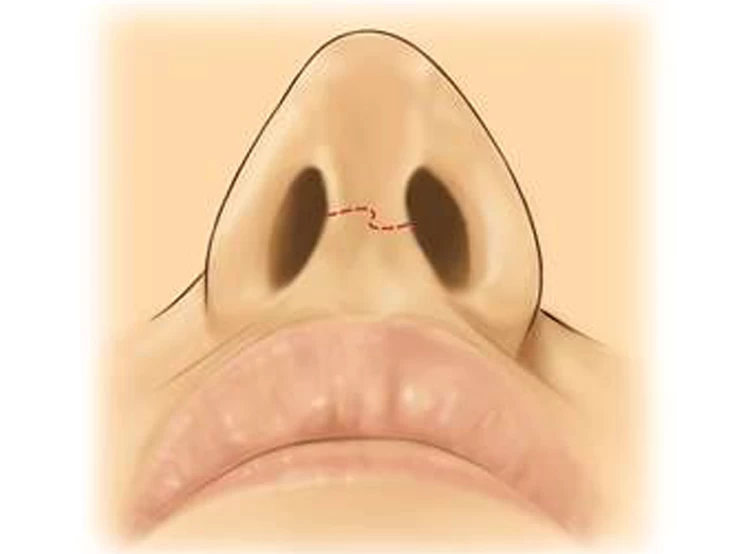
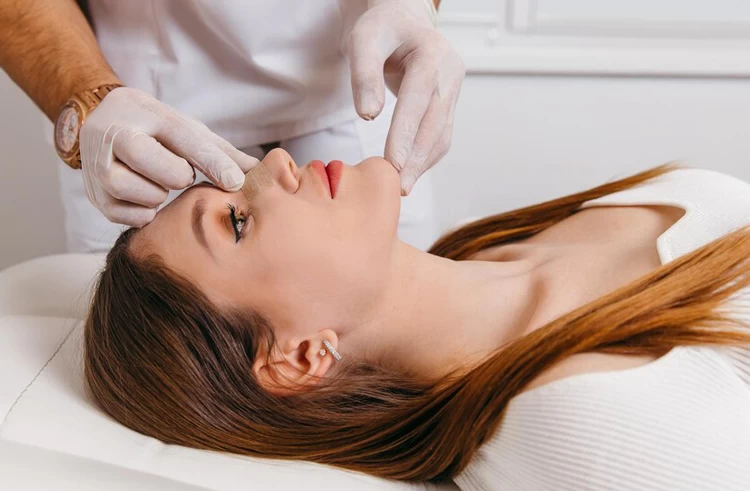

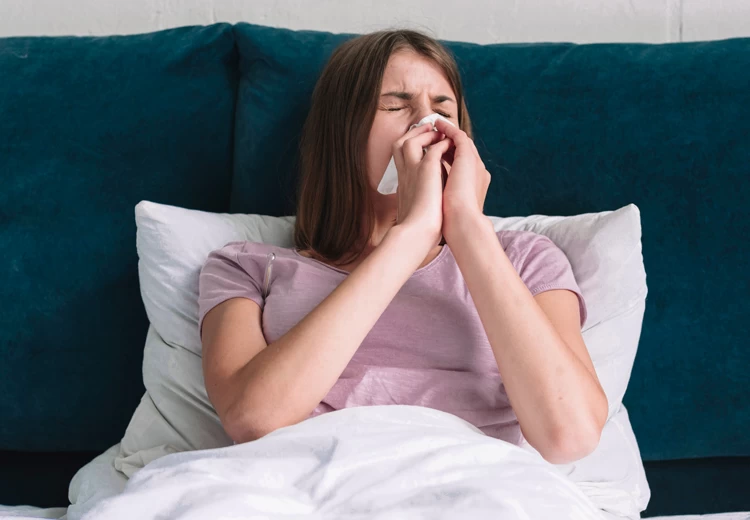
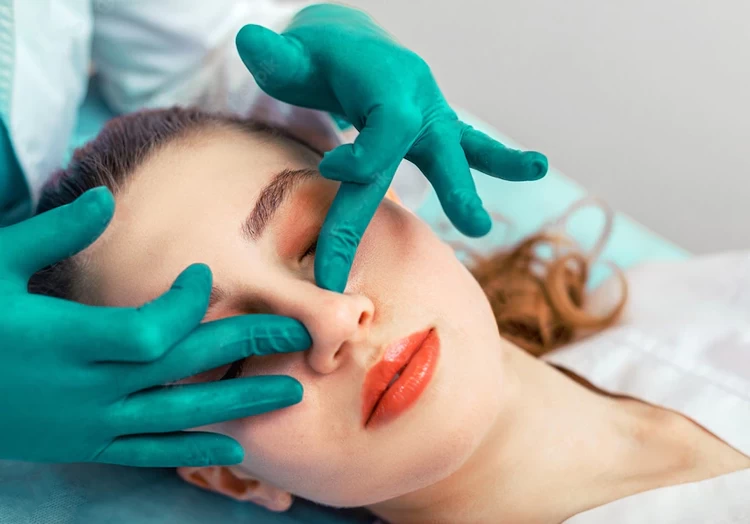
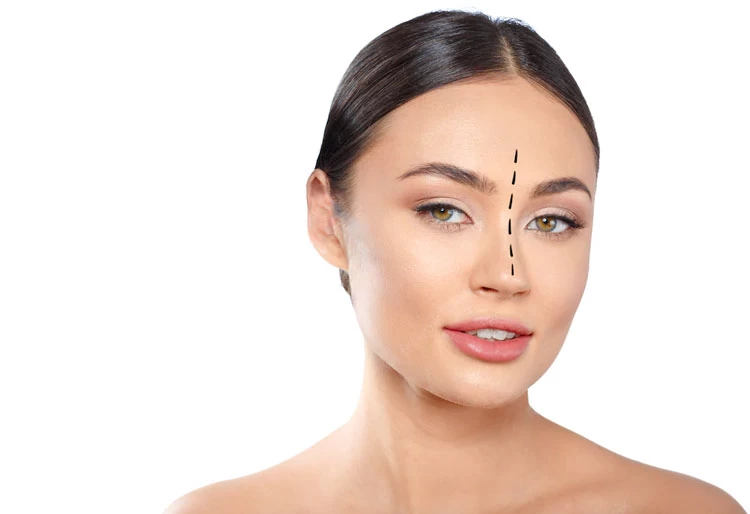

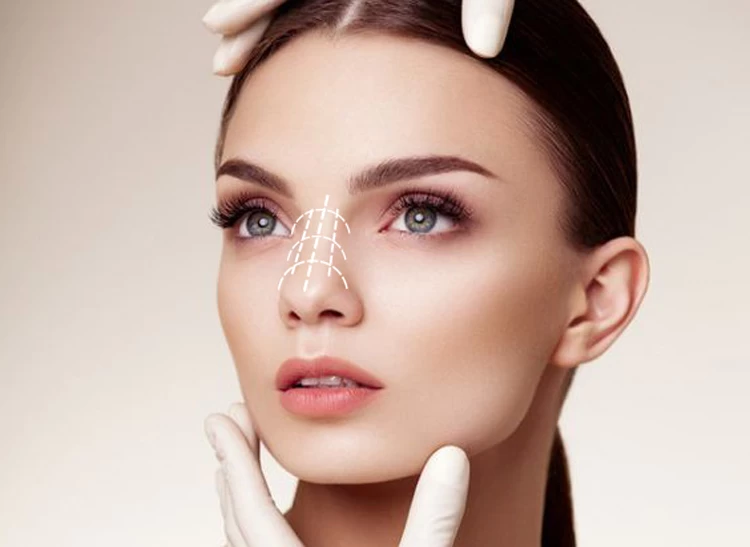
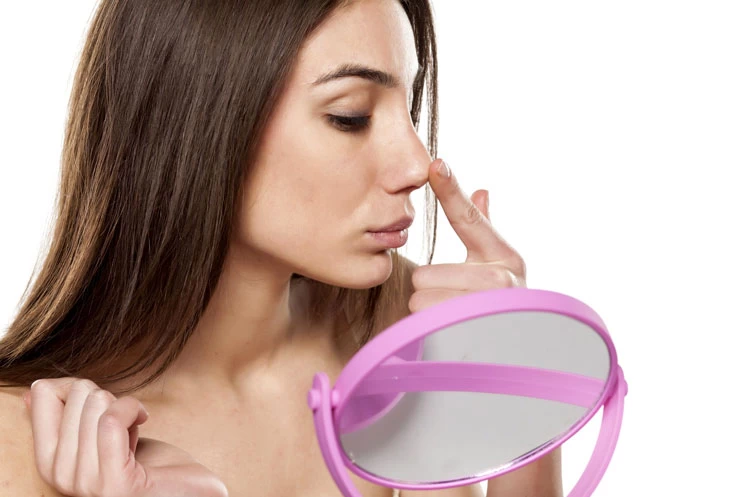
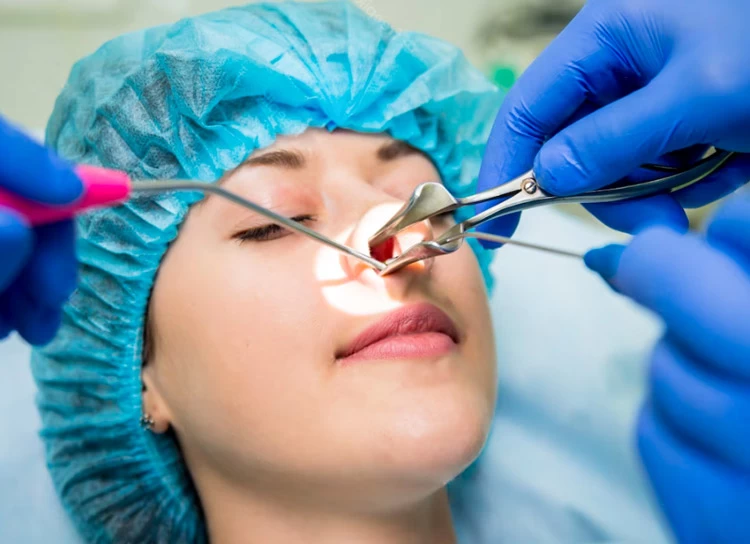
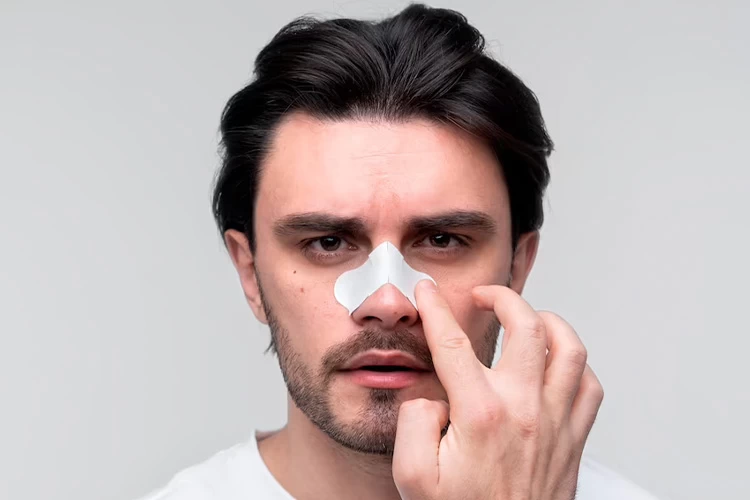
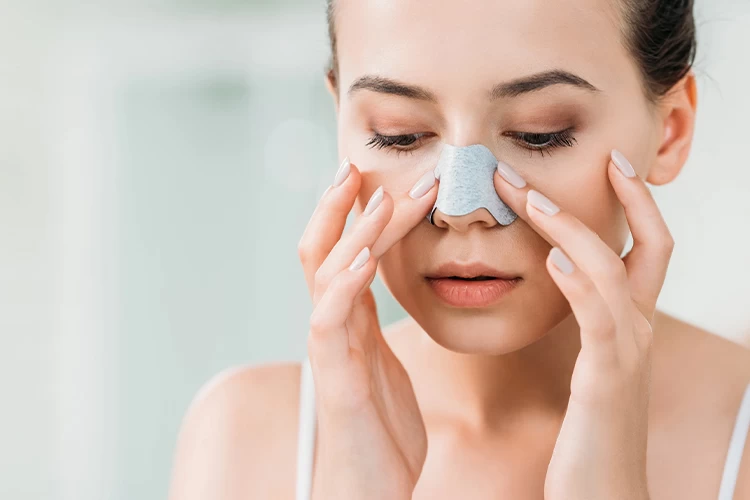
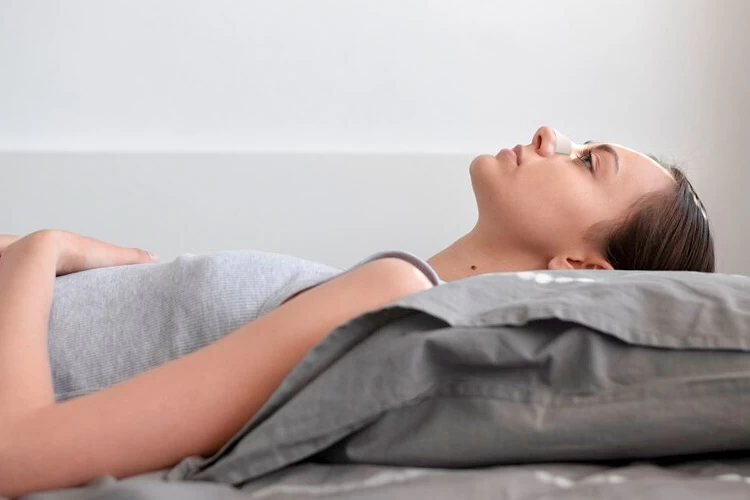
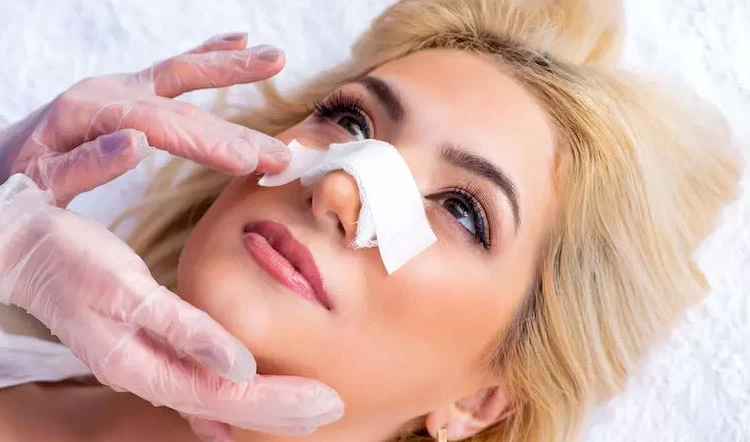
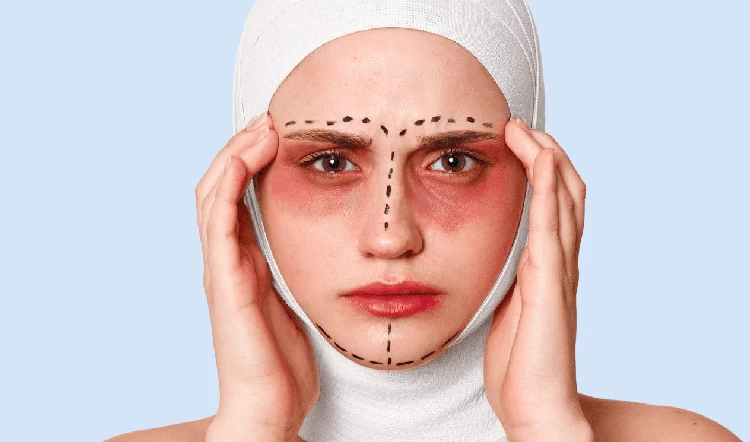
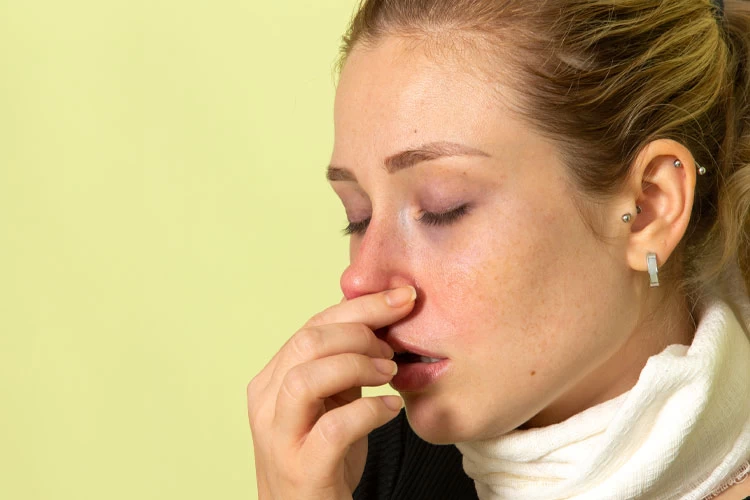
No reviews
Your comment